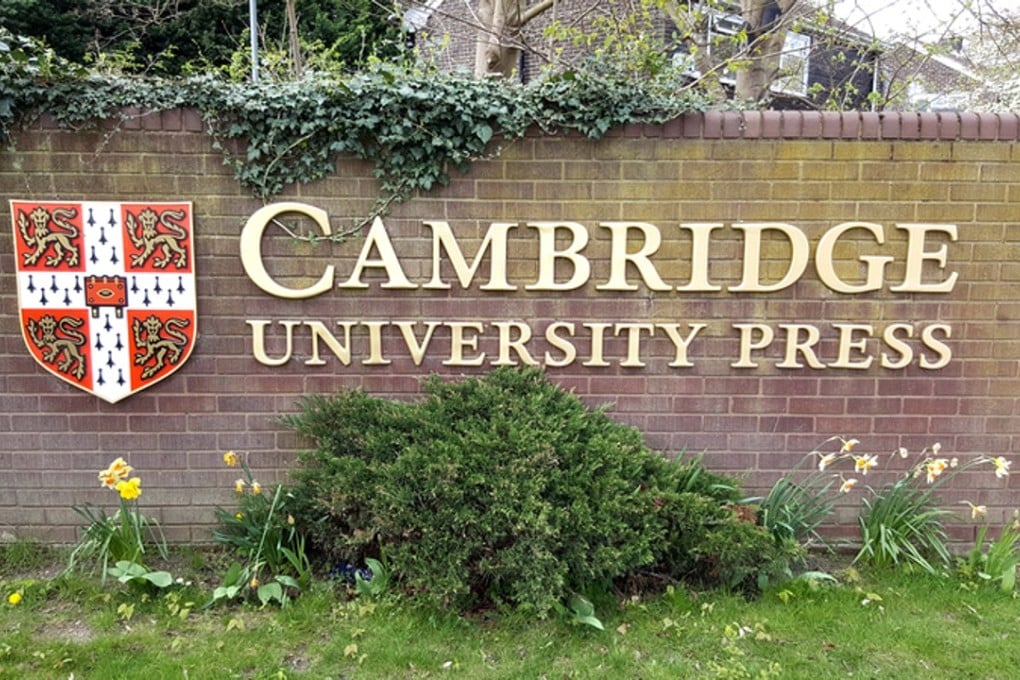Cambridge University Press reverses block on banned articles in China, decides not to kowtow to Beijing
Most of the censored works touched on the Tiananmen crackdown, Cultural Revolution, Tibet, Xinjiang, Hong Kong or Taiwan

Cambridge University Press, the world’s oldest publishing house, has reversed its decision to bow to Chinese government censorship and unblocked online access in mainland China to hundreds of banned articles.
The Britain-based publisher said late last week that it had taken down more than 300 articles from The China Quarterly at the request of the General Administration of Press and Publication.
But China Quarterly editor Tim Pringle said on Monday night that CUP would repost the papers.
“Following a meeting with officers from Cambridge University Press, The China Quarterly has been informed that CUP intends to repost immediately the articles removed from its website in China,” Pringle said.
He acknowledged the “justifiably intense reaction from the global academic community and beyond,” adding that the journal’s publication criteria would remain the same. More than 1,000 people had signed a petition requesting CUP refuse the censorship request.
Cambridge University said the decision to block the articles had been made “reluctantly” following a direct order from its Chinese importer. The move to reinstate them was to “uphold the principle of academic freedom on which the university’s work is founded”.